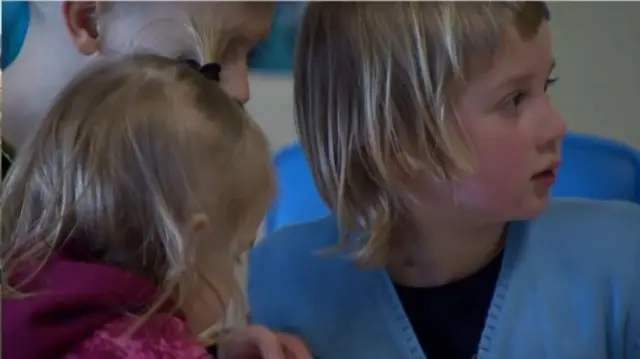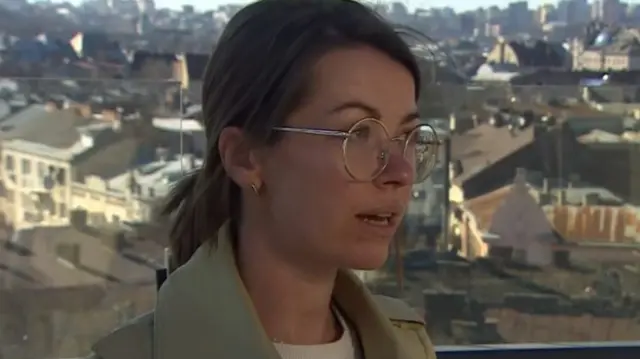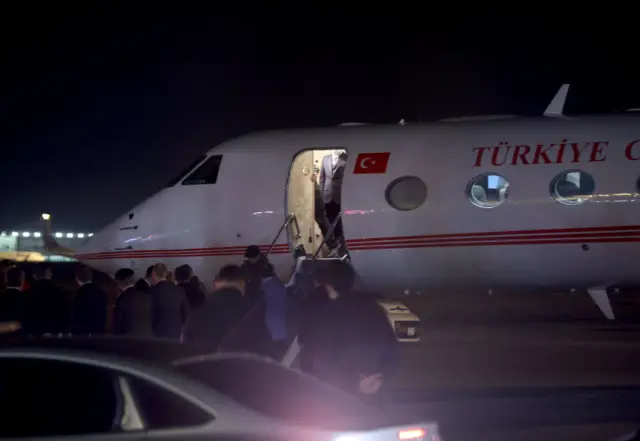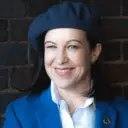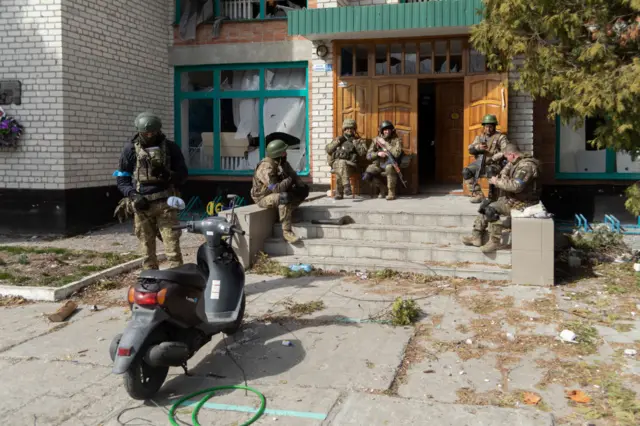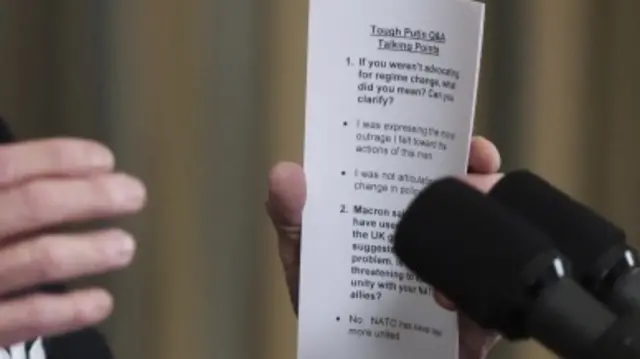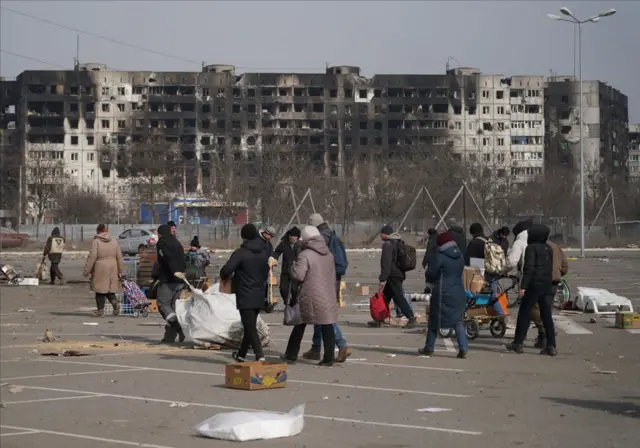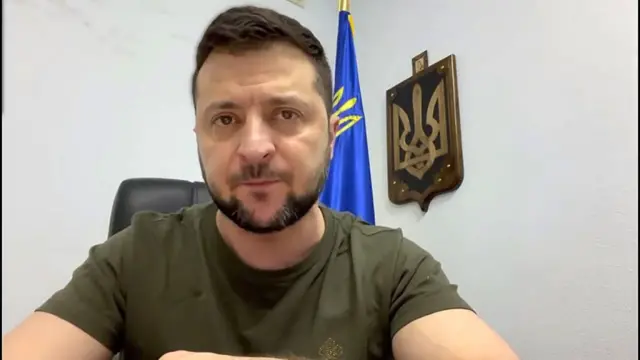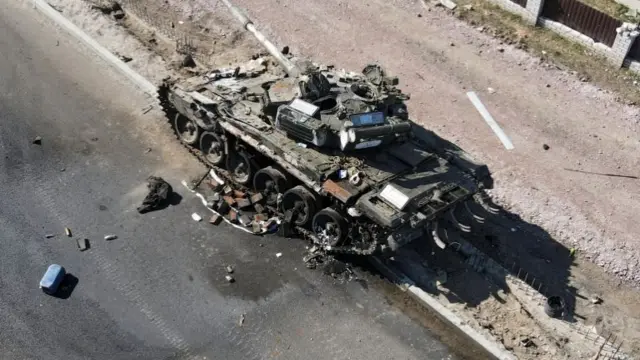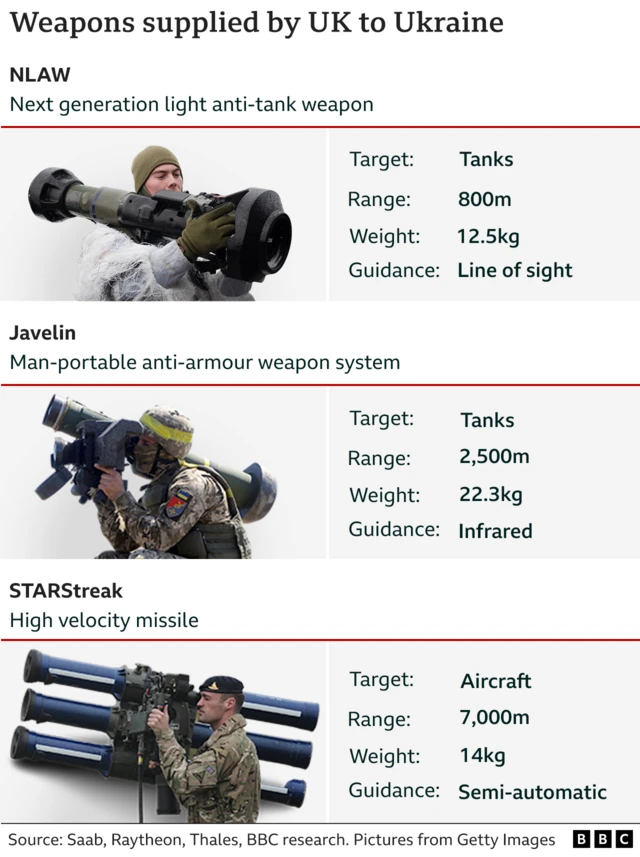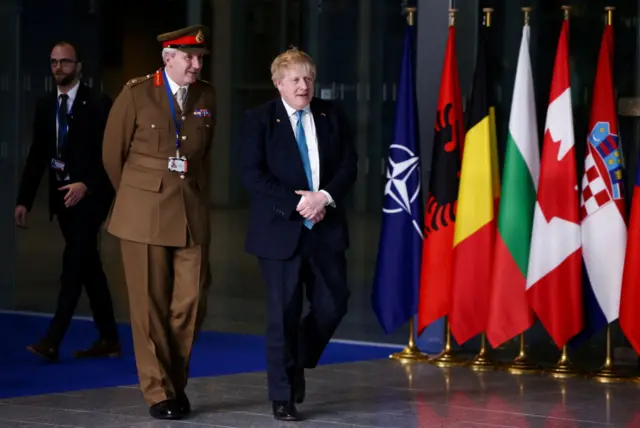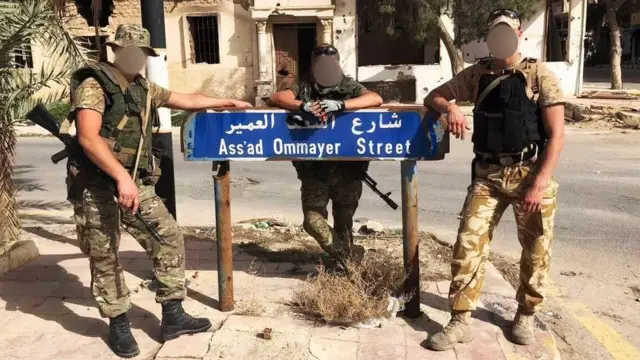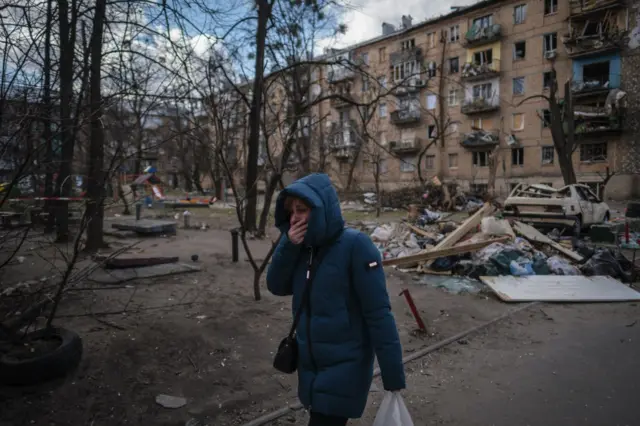In pictures: Kharkiv residents shelter in metro stationspublished at 05:13 BST 29 March 2022
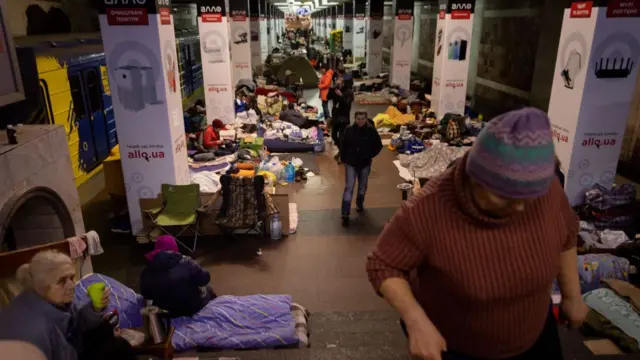 Image source, Getty Images
Image source, Getty ImagesThousands of Khakiv residents in Ukraine have taken shelter in subway stations in the north-eastern city, and some of them have been there since the start of the invasion.
Ten million people have now fled their homes in Ukraine because of the Russian invasion, according to the United Nations High Commissioner for Refugees.
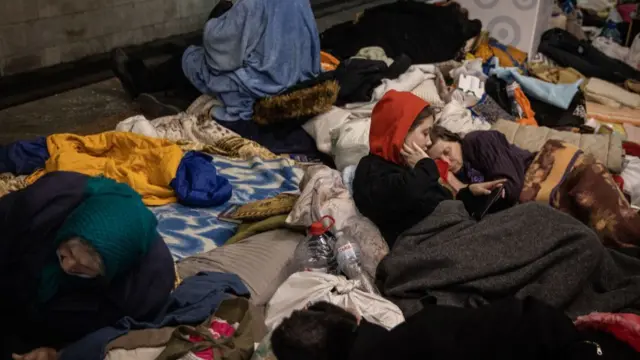 Image source, Getty Images
Image source, Getty ImagesMany have huddled together for warmth
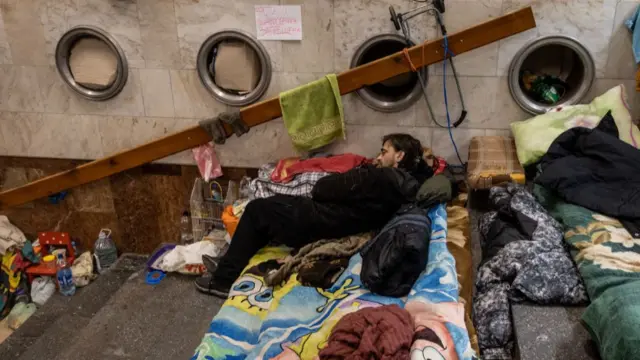 Image source, Getty Images
Image source, Getty ImagesSome have taken to sleeping on the stairs
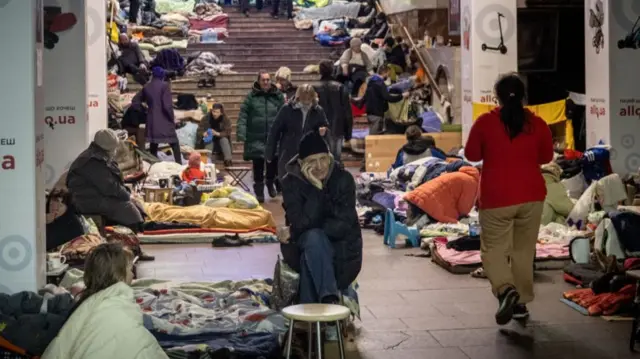 Image source, Getty Images
Image source, Getty ImagesKharkiv has been heavily bombed by Russians, forcing many to spend their days underground
